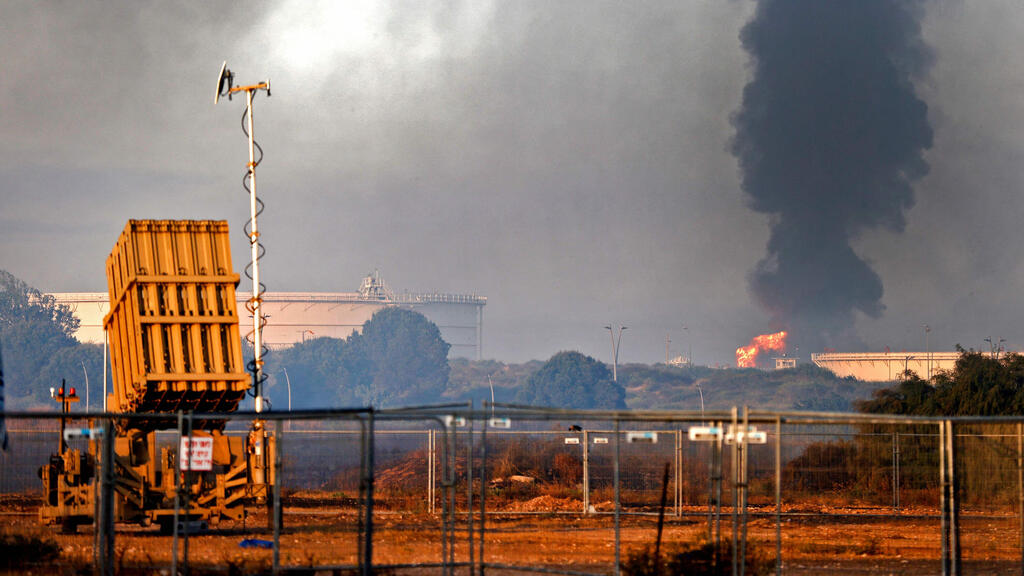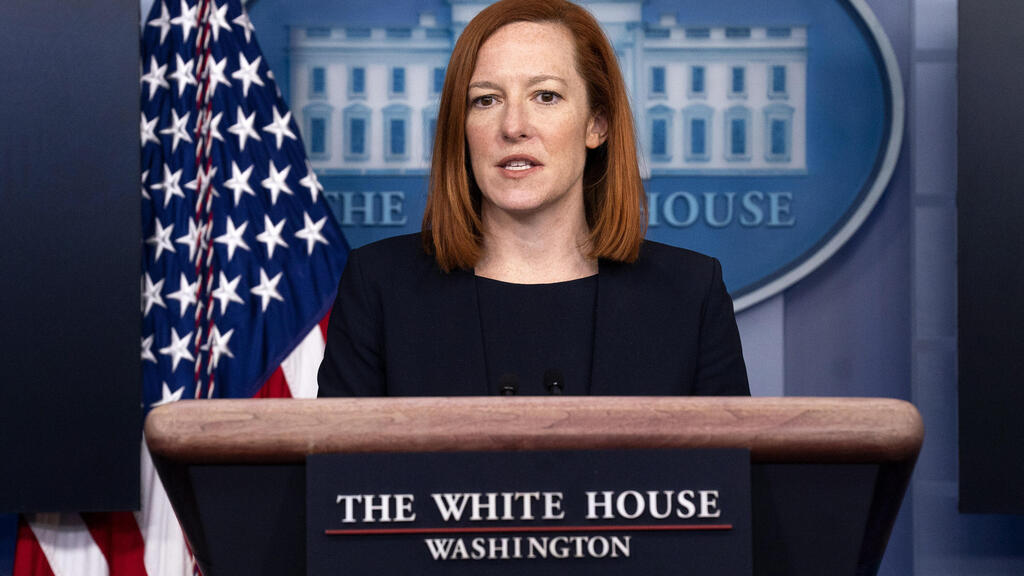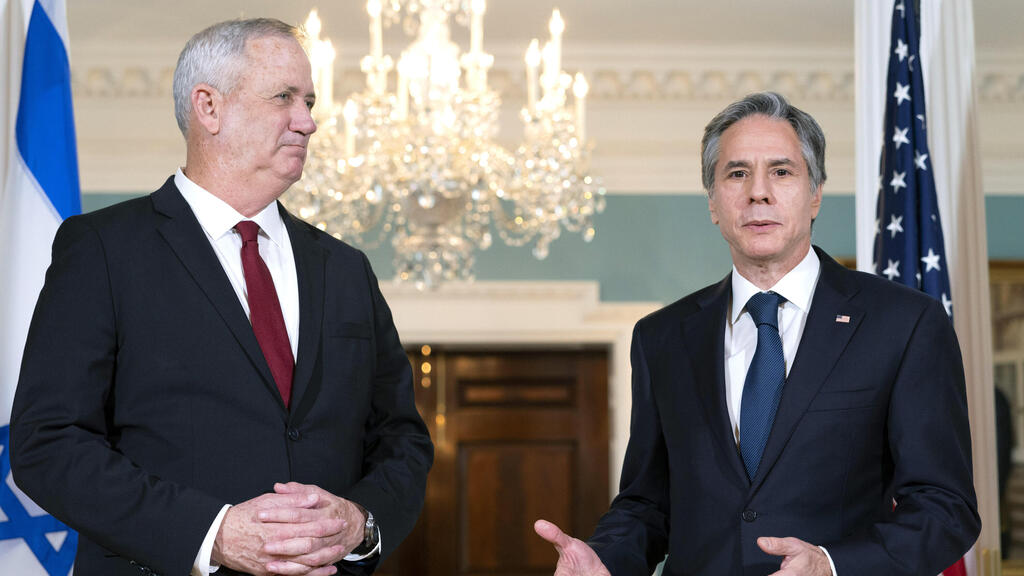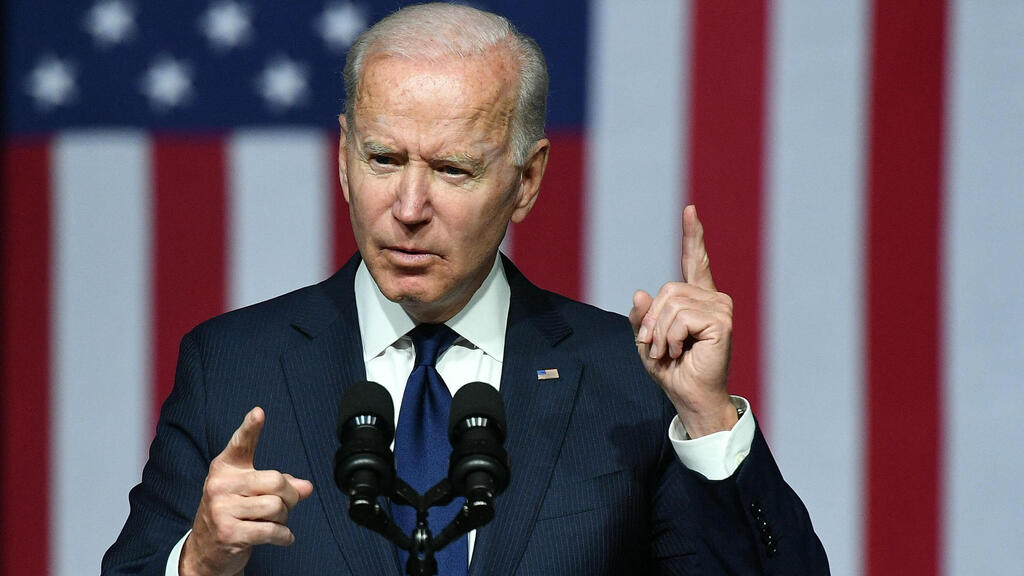Getting your Trinity Audio player ready...
Israel will remain an important strategic partner for the United States, the White House said on Thursday when asked whether U.S. policy would change if Prime Minister Benjamin Netanyahu was replaced after his 12-year run as premier.
Yesh Atid leader Yair Lapid struck deals with his partners in the so-called coalition for change on Wednesday evening that spells the end of Benjamin Netanyahu's 12 years as prime minister.
White House press secretary Jen Psaki told a regular briefing that the political formation of Israel's new government was up to the parties involved.
"Israel will remain an important strategic partner, one where you have an abiding security relationship, and that will continue," Psaki said.
In the meantime, Defense Minister Benny Gantz sought a reaffirmation of U.S. security commitments to Israel as the country weathers the aftermath of last month's war with Hamas terror groups in Gaza.
A key aim of Gantz's visit to Washington is believed to be securing U.S. funding to help restock Israel's Iron Dome, a sophisticated missile defense system that smacked down many of the more than 4,000 rockets that Hamas militants fired toward Israel last month.
More than a week of Israeli airstrikes and Hamas rockets killed 254 people in Hamas-ruled Palestinian Gaza and 12 in Israel.
Gantz was meeting with Defense Secretary Lloyd Austin and Secretary of State Antony Blinken. The Biden administration pledged ongoing support for Iron Dome on the eve of Gantz's visit.
"During the conflict we saw the Iron Dome system, which our nations developed together, save the lives of countless innocent civilians," acting Assistant Secretary of State Joey Hood told the Israel Policy Forum, a New York-based research group.
5 View gallery


Iron Dome activates in southern Israel as rockets are fired from northern Gaza overnight Thursday
(Photo: AFP)
President Joe Biden "is clear about this administration's support for replenishing this system to support Israel's ability to defend itself in the future," Hood said.
Republican Sen. Lindsey Graham of South Carolina, touring Israel this week in a show of support after the latest Gaza war, said he expected Israelis to seek up to $1 billion from the U.S. for Iron Dome, including for restocking the system's interception missiles.
The U.S. partnership in Israel's Iron Dome has wide bipartisan support in Congress, as does overall U.S. support for Israel's defense, a tenet of U.S. foreign policy for decades.
Last month's war, however ”the fiercest Israeli-Palestinian fighting since 2014” has exposed a rift in Biden's Democratic Party. Progressives and some others demanded a cease-fire by Israel as well as Hamas as Palestinian deaths grew in the crowded Gaza Strip, and Sen. Bernie Sanders, a Vermont independent, said the U.S. should take an "even-handed" approach to ally Israel in its long-running conflict with the Palestinians.
The latest Gaza war started May 10 after Hamas fired rockets toward Jerusalem in support of Palestinian protests against Israel's heavy-handed policing of the Al-Aqsa Mosque compound, a site sacred to Jews and Muslims, and the threatened eviction of dozens of Palestinian families by Jewish settlers.
5 View gallery


An Iron Dome missile defense battery is seen in the foreground as fire rages at Ashkelon's refinery following a rocket strike from Gaza, May 12, 2021
(Photo: AFP)
Biden and his administration have stressed U.S. support for Israel's defense and condemnation of Hamas attacks, while exhorting both sides to avoid incendiary moves. Long-term, the administration says it is maintaining U.S. backing for reviving a moribund peace process that would include a separate state for Palestinians.
Gantz is part of the coalition set to unseat Netanyahu. He is expected to remain in his post as defense minister if the government changes.




